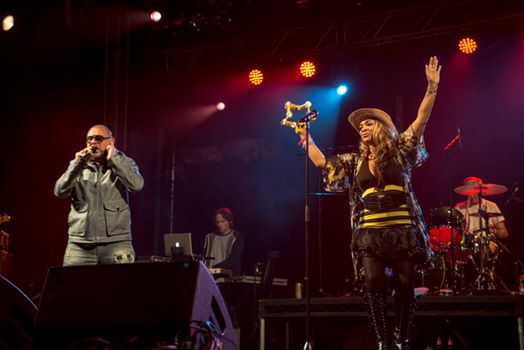 One of the hardest things about what we do as event managers is that we create projects and events that are ambitious and creative and when these take place in the public domain, our audience become judge and jury. More often than not, that judge and jury are happy, wowed even by the whole experience but just sometimes we find that in their view, we are wanting. That our work isn’t up to scratch from their perspective and that someone (I.e. You) should be held accountable.
One of the hardest things about what we do as event managers is that we create projects and events that are ambitious and creative and when these take place in the public domain, our audience become judge and jury. More often than not, that judge and jury are happy, wowed even by the whole experience but just sometimes we find that in their view, we are wanting. That our work isn’t up to scratch from their perspective and that someone (I.e. You) should be held accountable.
The process of receiving that feedback from our audiences can be incredibly difficult to accept and process. We naturally fixate on the negative comments and our first response can be defensive. We put our hearts and souls into these projects, even more when they are community based events, and when we get negative feedback it can feel like it’s all being thrown back in our faces, so it’s perfectly normal to be defensive. However, it’s not a particularly productive response.
Considering the opposite extreme, we equally shouldn’t dismiss such feedback as not having any value, especially if we are only saying so to preserve our own ego. All feedback is valuable – someone has taken the time to share their views – so we need to take it on board and as a minimum incorporate it into the evaluation and reflection process post-event.
This is hard work because emotions are involved and they are involved because we are creating experiences and setting expectations in our marketing that sometimes don’t come to fruition in the same way for everyone. So people are disgruntled. They may perceive that something hasn’t been thought through when the opposite is true – the solution that has been found has been thought about in great detail because there isn’t an easy fix and what’s been agreed is a compromise. The more complex the project, the more likely we are to have negative feedback.
We need to be grown up about it, even when they are being hostile and making it personal. We have to swallow our pride and ego and listen to them. This is vitally important. Don’t assume that you know what their complaint is before they have said it. Listening to the complaint is a valuable part of potentially rebuilding the relationship with them and it means that you will get all the detail of the issue which means you can do something about it (potentially).
We can promise to take their feedback on board and include in evaluation; we can promise to adapt the plans for next time; and we can apologise for the offence or disruption or upset caused. An appropriate apology goes a long way in re-engaging that person and the conversation opens an opportunity to explain some of the decisions made, particularly those of a practical nature. This grown up approach is a means to ensure that we get the truth out of the complaint that we can do something about and enables us to bring our audience closer to the project, maybe even bring them into the project, moving them up the relationship ladder (Christopher et al, 1991).
So we can be as grown up as we like, not everyone will reciprocate and sometimes journalists misuse it to create non-existent news stories, so I recommend getting some media training and building a support network who will help to pick you up afterwards and remind you of all the good you have done. For every complaint I have ever had about an event, there have been tens of not hundreds and thousands more that have been overwhelmingly positive. So my last suggestion is to train your brain to balance the positive and the negative to get a real picture of your success.
Claire Eason Bassett, Managing Director, Mackerel Sky Events
 The past couple of months have been a bit of blur, travelling across the South West and UK whilst working at a variety of events – I am writing this sat in my hotel in Manchester having spent the week at Tatton Park Flower show. Earlier this week Joey and I were chatting over dinner and how we came to know about Mackerel Sky, which I thought would be a good intro into my first blog.
The past couple of months have been a bit of blur, travelling across the South West and UK whilst working at a variety of events – I am writing this sat in my hotel in Manchester having spent the week at Tatton Park Flower show. Earlier this week Joey and I were chatting over dinner and how we came to know about Mackerel Sky, which I thought would be a good intro into my first blog.







